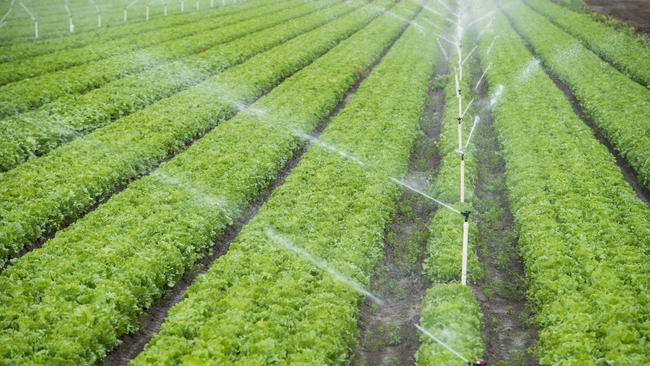Agriculture Victoria keeps farm chemical residue test results hidden
Agriculture Victoria performs about 35,000 tests for agricultural chemicals on 350 to 400 samples of Victorian-grown fruit and vegetable each year. But they refuse to make them public, despite doing so in the past.

CONSUMERS are being denied the right to know what agricultural chemicals are being detected in the Victorian-grown fruit and vegetables they eat, including those that breach maximum residue levels.
Agriculture Victoria’s Chemical Standards Branch performs about 35,000 tests for agricultural chemicals each year on 350-400 samples of Victorian-grown fruit and vegetables sold in markets in Melbourne, Sydney, Adelaide, Brisbane and the Northern Territory.
For years the test results were made public, with results from 2002 to 2011-12 showing anywhere from 3.6 to 11.4 per cent of samples breached the nationally accepted maximum (chemical) residue limits or were found to contain pesticides, fungicides, herbicides or heavy metals for which there was zero tolerance.
But the annual tests results, which are funded by Victorian taxpayers, are no longer published, with an Agriculture Victoria spokeswoman telling The Weekly Times “there’s a lot of concern of that data being misconstrued”.
When asked if the Government would at least release the number of samples tested and a list of those that breached the MRL, the spokeswoman said that would not be happening.
“We can’t provide that data because it’s used for compliance activities and planning,” the spokeswoman said.
HAVE YOUR SAY: Should the Vic Government release residue test results? Comment below
Australian Organic chief executive Niki Ford said consumers had the “absolute” right to know the results of the Agriculture Victoria tests.
“Every consumer has the right to know what they’re purchasing and how it’s produced,” Ms Ford said.
The Weekly Times has lodged a Freedom of Information request for the results of the last four years of Agriculture Victoria’s test results, under the Targeted AgChem Residue Program.
But FoI legislation gives the Andrews Government 30 days to respond and charge fees for supplying the data.
The Federal Government appears to be more open in its reporting and releasing agricultural chemical test results under the National Residue Survey for four horticultural crops — apples, pears, almond and macadamias — plus others covered by the Australian Total Diet Study.
The NRS also makes public a comprehensive lists of almost 12,000 test results on grain, meat, seafood and honey, including MRL breaches, to ensure Australia meets its export obligations. Plus the results of 1000 samples tested under the Australian Milk Residue Analysis Survey.
The publicly available NRS results allow export customers to examine lists of MRL breaches from 2000 tests of 15 different grain crops, plus almost 10,000 tests for chemical and antibiotic residues in animal produce from cattle, sheep, pigs, poultry and game species.
Meanwhile, Victorian consumers are being left in the dark on what agricultural chemicals the tens of thousands of tonnes of locally-grown fruit and vegetables they eat contain.
Victorian Agriculture Minister Mary-Anne Thomas refused to detail why the results were not being released, simply stating: “Victorian produce rightly has a global reputation for being clean and green – our regulatory frameworks are key to this status.”
“The National Residue Survey and Victoria’s Targeted AgChem Residue Program programs are completely different and to compare them is misleading,” Ms Thomas said.
“For most commodities, the NRS is an opt-in, industry-paid system to provide produce assurances that helps market access, while TARP is a targeted program looking for chemical misuse to support better industry practice.”
Agriculture Victoria issued a statement declaring consumers have nothing to worry about, stating local testing “demonstrates that Victorian producers are highly compliant with good practice requirements for agricultural chemical use”.
“If unacceptable residues are detected, Agriculture Victoria will conduct a trace-back investigation to determine the cause of the residue and assess compliance with agricultural chemical laws,” the agency stated.
“If the investigation identifies chemical misuse (such as chemicals not used in line with the label requirements or unregistered use) then Agriculture Victoria will undertake compliance actions proportionate to the chemical misuse identified.
“Traceback investigations are also an opportunity to educate chemical users on good chemical use and residue management practices.”
Victorian Farmers Federation horticulture president Nathan Free declined to comment on the issue.
MORE


